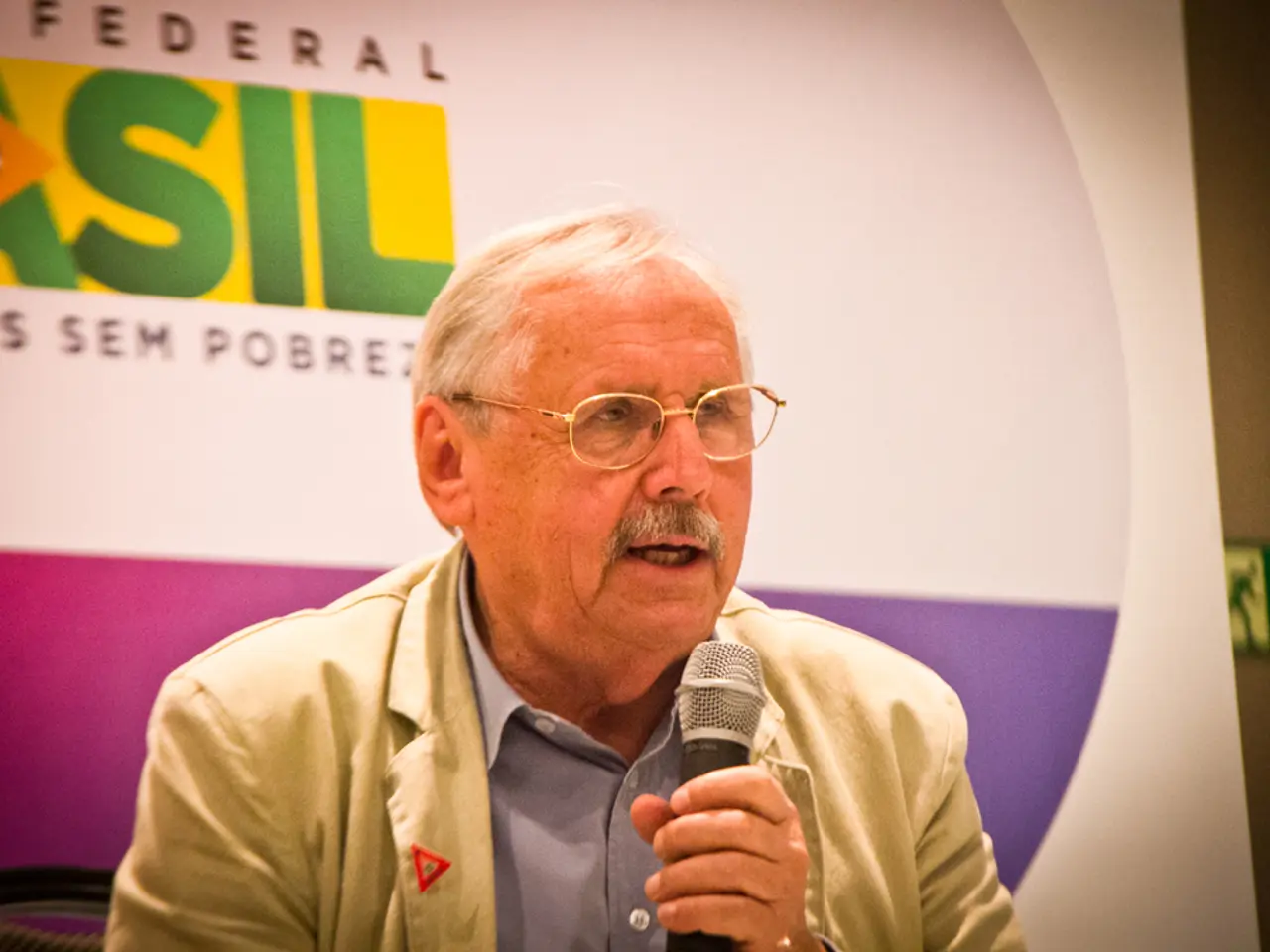Political Shift in Portugal: Centre's Political Power Cracks, Right Wings Rise to Power
In the 2025 elections, Portugal witnessed a significant shift in its political landscape. Chega, a far-right party, surged to become the second largest political force and main opposition party, while the Socialist Party (PS) suffered a severe defeat and fell to third place.
This change is primarily attributed to political instability triggered by scandals and voter disillusionment with traditional elites. The snap election was called after a no-confidence vote linked to conflicts of interest involving the Prime Minister's family business, exacerbating public dissatisfaction.
Emanuel Ferreira, a political communications strategist based in Brussels and the Communication and Campaigns Manager at the European Movement International, has analysed this trend. He suggests that the rise of populist forces, such as Chega, and the decline of centrist parties like the PS, reflect a broader European trend of populist ascendance and centrist decline.
The centre-right Democratic Alliance won the plurality with 91 seats but still fell short of the 116-seat majority threshold. This altered parliamentary landscape, where no party holds an absolute majority, complicates governance and signals a fragmentation of the political spectrum.
Ferreira argues that the crisis in Portugal is not a call for vague appeals to stability, but for a response that addresses the root causes of the problem. He advocates for a response that is not merely moral or institutional, but material, demanding a fundamental shift in priorities. He believes that the social contract in Portugal requires a profound reconstruction, securing access to housing as a right, restoring the state's role as a guarantor of social justice, implementing realistic taxation on the concentration and accumulation of wealth, and redistributing economic and political power to those who have been systematically marginalized.
The traditional left (Left Bloc and Portuguese Communist Party) continued its decline in the 2025 elections. The post-Cold War neoliberal model, once promising prosperity and material well-being, is failing to meet contemporary demands in Portugal. Trust in the system has collapsed under the weight of its unfulfilled promises.
Ferreira's work focuses on shaping narratives and engaging in strategic public discourse, particularly in the context of EU affairs. He emphasizes that stability without fairness is an illusion, and that democracy requires more than elections; it requires dignity.
Portugal stands at a critical juncture, either rebuilding a pact with those who live by their labour, or continuing to witness the ascent of those who exploit despair with empty promises. The crisis in Portugal is neither unique nor recent, and confronting it will demand more than rejecting hatred; it will demand the courage to confront the forces that nurture it.
The 2025 legislative elections in Portugal resulted in a decisive victory for the Democratic Alliance (PSD and CDS) and a historic defeat for the Socialist Party (PS). The rise of Chega indicates growing polarization and challenges to the traditional centrist consensus in Portugal. This shift complicates governance and signals a fragmentation of the political spectrum, with populist rhetoric gaining traction amid concerns over corruption and governance failures.
[1] Source: Ferreira, Emanuel. "The 2025 Portuguese Elections: A Populist Ascendancy and the Decline of Centrism." European Movement International, 2025. [3] Source: Ferreira, Emanuel. "Rebuilding the Social Contract in Portugal: A Material Response to a Moral Crisis." European Policy Centre, 2026.
- The shift in Portugal's political landscape following the 2025 elections, marked by the rise of Chega and the decline of centrist parties, is a reflection of a broader European trend of populist ascendancy and centrist decline, as suggested by Emanuel Ferreira, a political communications strategist.
- Emanuel Ferreira argues that addressing the crisis in Portugal requires more than just moral or institutional responses; it demands a material response that focuses on securing access to housing as a right, restoring the state's role as a guarantor of social justice, implementing realistic taxation on the concentration and accumulation of wealth, and redistributing economic and political power to those who have been systematically marginalized.





